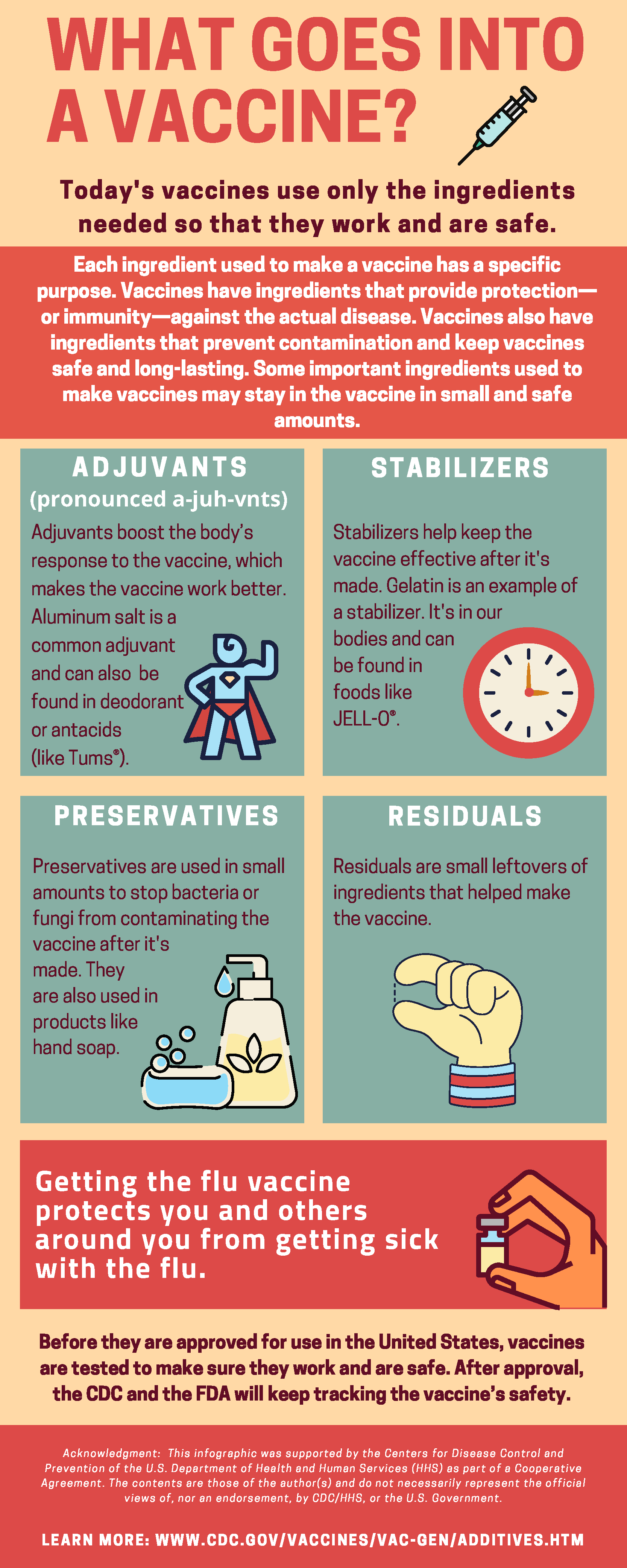Today's vaccines use only the ingredients needed so they work and are safe.
Each ingredient used to make a vaccine has a specific purpose. Vaccines have ingredients that provide protection—or immunity—against the actual disease. Vaccines also have ingredients that prevent contamination and keep vaccines safe and long-lasting. Some important ingredients used to make vaccines may stay in the vaccine in small and safe amounts.
Adjuvants (pronounced a-juh-vnts)
Adjuvants boost the body’s response to the vaccine, which makes the vaccine work better. Aluminum salt is a common adjuvant and can also be found in deodorant or antacids (like Tums®).
Stabilizers
Stabilizers help keep the vaccine effective after it’s made. Gelatin is an example of a stabilizer. It’s in our bodies and can be found in foods like JELL-O®.
Preservatives
Preservatives are used in small amounts to stop bacteria or fungi from contaminating the vaccine after it’s made. They are also used in products like hand soap.
Residuals
Residuals are small leftovers of ingredients that helped make the vaccine.
Getting the flu vaccine protects you and others around you from getting sick with the flu.
Before they are approved for use in the United States, vaccines are tested to make sure they work and are safe. After approval, the CDC and the FDA will keep tracking the vaccine’s safety.
Learn more at: www.cdc.gov/vaccines/vac-gen/additives.htm
This resource is supported by the Centers for Disease Control and Prevention of the U.S. Department of Health and Human Services (HHS) as part of a Cooperative Agreement. The contents are those of the author(s) and do not necessarily represent the official views of, nor an endorsement, by CDC/HHS, or the U.S. Government.

